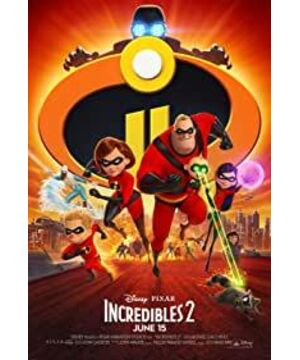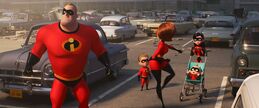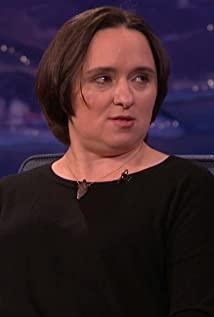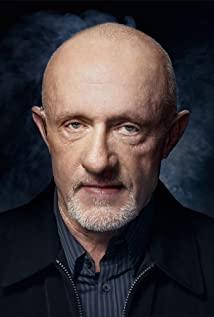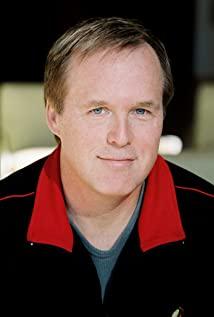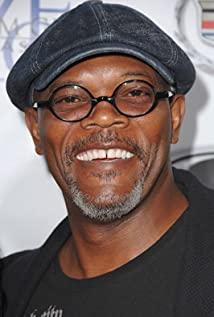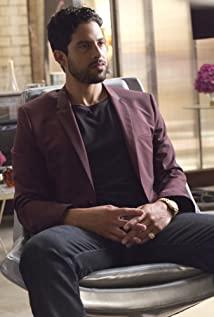[Includes spoilers, it is recommended to read after watching the movie. 】
I have been looking forward to this sequel for a long time. It was released in North America before China, so I couldn’t wait to see what foreign film critics thought when the media reviews came out. When I finally finished watching the movie, I turned through the Chinese film reviews. It didn't sound like a movie at all. This film is not just a funny and cool family carnival cartoon, Brad Bird’s 14-year sequel contains a lot of messages he wants to convey.
【The value of family labor】
Mr. Incredible being a full-time dad is probably the biggest selling point of this movie's early publicity, and it is also the biggest reversal of this sequel and the first one.
Dad can't take care of children, I'm afraid he is already a global stalker. As a superhero, Bob can go to heaven and earth, but he has a child in a hurry. This part of the plot bears most of the laughter of the whole film, but behind the funny, we should see that it is different from the Internet popular stalk:
First, when his wife has a chance to get a good job, Bob takes the initiative to take care of the whole family so that his wife can work with peace of mind. This seems simple, but I am afraid that many men can't do it.
Second, when Bob encountered difficulties, he did not give up, but tried to overcome them. If I can’t do arithmetic problems, I will study all night; when my daughter encounters problems in love, I will help her create opportunities (although it’s a bit of a disservice)-by the way, seeing other parents’ love for adolescent children will never ridicule or ridicule them. Suppress.
Third, and most importantly, from the very beginning, Bob felt that it was easy to take care of children. Then he asked Lucius (the domestic subtitles seem to be translated into Louis? What do you think) and Mrs. Yi for help, and gradually realized the difficulty and meaning of family labor. Staying at home to take care of your children is no easier than fighting super criminals, and both are equally important. Even Violet took the initiative to stay and take care of Jack-Jack instead of competing with Dash to be a hero, which is also the transmission of this value.
Why is this important? Whether it is a full-time mother or a full-time dad, in many people's minds, not going out to work is the state of being "supported", and the person who makes money is the one who "supports the family." This kind of thinking actually ignores the value of family labor. Full-time parents are also a job, and they work 24/7. This film uses an entertaining way to show the difficulties of a full-time father, and it also emphasizes the value of family labor.
However, a group of marketing accounts that like to refer to their own third-person pronouns have labelled the film as "politically correct" as soon as they came up, saying that it is not pure. I turned my eyes to the sky when I saw this-all works of art are the expression of the creator, and the world is not pure and objective works of art at all. It's not pure or objective, just because they don't agree with it.
What's more, these marketing names that even use the wrong terminology (feminist rights = "women's rights", not "women's rights" thank you), why are they such an enemy to gender equality? Attacking political correctness at every turn, is there anything wrong with propagating gender equality, racial equality, and humanistic care? What kind of people would be disgusted when seeing gender equality and racial equality? It's no wonder that domestic films always love to shoot middle-aged greasy men who derail their first love and return to their loyal wives. This is a "political incorrect" story.
[Marketing in the New Media Era]
When the Deavor brothers and sisters met three superheroes for the first time, they said that now to achieve the goal of legal superpowers, it is necessary to create a good image of superheroes. In the words of the current domestic media, it is necessary to establish a good personality. For this character, the superhero has to wear a camera and work as a part-time anchor.
Helen (the domestic subtitles seem to be turned into Holly, I don't know why, Holly is the name of the voice actor) and Evelyn had a very interesting conversation at the reception. Evelyn asked Helen, she and her brother, one designs all products and the other is responsible for marketing, which is more important? Helen replied, looking optimistically, of course the content is important; but if you are cynical, if you can market it, it doesn't matter what you buy. Evelyn responded, yes, if I build a spaceship (to the effect, I can’t remember the details), my brother may also package it as a foot massager.
Yes, all marketing nowadays is pursuing short, flat, and fast-people must highlight the personality, that is, labels, and compress complex personality into one or two words; products must be grounded, and complex aerospace technologies are few. I can understand that a foot massager can be used by everyone. Isn’t it the same with our self-media? The popular American drama "The Great Mrs. Maisel" not long ago was a film about women's self-reliance after a failed marriage, but it was packaged by some marketing accounts as "exquisite girls live like this." . As long as the packaging is good and the title is sensational enough, there will be traffic, and the content is not important.
Why is there such a phenomenon? Please look at the next point-
[Slave of the screen]
The villain, Screenslaver, literally means that the master of the screen slave, and we who are controlled by the screen are all slaves of the screen. While Helen sneaked to track the screen tyrant, the screen tyrant broadcasted a very thought-provoking message. To the effect, people are now sitting in front of screens, abandoning real life: do not go to travel, only watch tourism programs; do not go to exercise, only watch sports games. Everything must be packaged into a program and displayed on the screen.
Yes, nowadays, all kinds of TV programs are emerging in endlessly-good-looking and good-looking, and they also take up a lot of our time. We don’t have time to create our own experiences, so we watch other people’s videos: watching others eat, watching others raise cats, watching others play games. It seems that it is more convenient to enrich our lives, but we are also accustomed to taking such shortcuts and passively receiving information.
Some people interpret the villain’s theory as a warning to the generation who cannot live without mobile phones, but I think it’s not that simple. First of all, the timeline of this sequel is immediately after the one 14 years ago. Everyone has noticed that mobile phones are not popular in the movie. People still use landline phones to make calls. There is no mobile phone control. Second, the dependence on mobile phones. The problems described by the villain above do not completely overlap.
The man behind the screen tyrant, Evelyn, became the villain because of the death of his parents that year. Father relied too much on superheroes, but gave up the most direct and effective way of evacuation. He insisted on calling the superhero instead of avoiding it, and was killed. If we have watched too many superhero movies, do we think deep down in our hearts that there will be others to rescue us in times of crisis? Bill Maher also had a similar view. He believed that superhero movies make people indifferent to disasters. He always hopes that there is a strong person to solve all problems. Even his mentality has caused some people to regard Trump as the savior.
Although Bill Maher's conclusion is questionable, he does not exaggerate the influence of visual media on people. The beginning of the Jack-Jack battle against the raccoons was when the little baby saw a bad guy stealing on TV, and a heroic character came out to stop it. The lens language here is very precise. The thief wearing the blindfold on the TV pans out the window with the raccoon with the same shape of "black eye". The poor raccoon just wanted to find something to eat in the garbage, but he was treated as a criminal.
Not to mention the influence of various reality show stars and Internet celebrities. From the money-worshipping life of the Kardashian family to the peaceful years that you see in your circle of friends, it is a packaged appearance, but it has caused endless anxiety among the onlookers. The girls pay too much attention to the outside and spend a lot of time and money on weight loss and plastic surgery. This is the result of the continuous bombing of the media. And they are like Evelyn's father, obsessively dependent on a fantasy, but can't see the absurdity of this orientation.
[The rich do whatever they want]
At the end of the movie, when the villain Evelyn was arrested and everyone seemed to be happy, Violet said: She is so rich, I am afraid that she will come out after a few days in jail. This line is enough to separate this movie from those heroic films with a happy ending.
In traditional movies, one person or several people always save the world, and the bad guys are just one person or several people. When the good guys knock down the bad guys, the world will be saved, and even the millions of bad guys will immediately stop fighting. Usually the story ends here, and the world is calm again.
But Brad Bird just added this cynical sentence to bring people back to reality. The rich always seem to have privileges, and the sins in the world will not be eliminated all at once. It is also Brad Brid's thinking that will have the beginning of this series-what happens after the superhero saves the world?
They have to face claims, get married and have children, face a midlife crisis, be scolded by their bosses, worry about the growth of their children; they are treated as a burden by the government and saboteurs by the people; it is hard to find a decent job for a half-life. The whole family is almost on the streets, and the children of the rich can easily reverse the situation and even help themselves escape sanctions.
Is it very realistic?
View more about Incredibles 2 reviews


